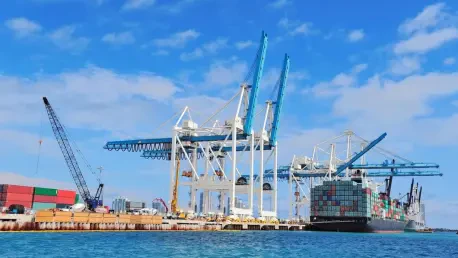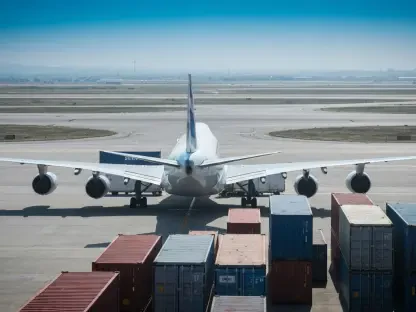What does it take to keep the global energy supply chain running seamlessly in an era of fluctuating markets and geopolitical tensions? For Bahri, Saudi Arabia’s premier shipowner, the answer lies in a monumental 10-year renewal of a crude oil shipping agreement with South Korea’s S-Oil Corporation. This deal, centered on transporting vital crude from the Middle East to South Korea, signals more than just a contract extension—it represents a bedrock of stability in a volatile industry. Picture massive Very Large Crude Carriers (VLCCs) navigating key trade routes, ensuring energy security for one of Asia’s largest refiners. This partnership is a testament to enduring trust and strategic foresight, setting the stage for a deeper exploration of its significance.
A Cornerstone in Global Energy Trade
At the heart of this story is the renewed Contract of Affreightment (COA), a deal that guarantees a steady flow of crude oil from the Red Sea and Arabian Gulf to Onsan, South Korea. This isn’t merely a business arrangement; it’s a critical pillar supporting S-Oil’s refining capacity and, by extension, South Korea’s energy needs. With oil transportation accounting for 51% of Bahri’s revenue and 58% of its pre-tax profits in recent quarters, this agreement underscores the company’s pivotal role in the maritime energy sector.
The importance of this partnership extends beyond immediate financials. It reflects a strategic alignment between Saudi Arabia and South Korea, two nations integral to the global energy landscape. In a time when supply chain disruptions can ripple across continents, such long-term commitments offer a buffer against uncertainty, ensuring that both companies can plan with confidence for the next decade.
The Mechanics of a Powerhouse Partnership
Diving into the specifics, this 10-year COA commits up to 10% of Bahri’s 50-VLCC fleet to S-Oil’s needs, a significant allocation that secures consistent revenue streams. This dedication not only optimizes fleet utilization but also minimizes exposure to the unpredictable swings of the shipping market. Bahri’s broader fleet, which includes 104 vessels across various categories like chemical tankers and dry bulk carriers, demonstrates its versatility, yet oil remains the backbone of its operations.
The partnership’s impact on S-Oil is equally profound. With a reliable supply of crude oil assured, the refiner can focus on expanding its operational capacity without the looming threat of supply chain hiccups. This deal builds on over 20 years of collaboration, highlighting a relationship rooted in mutual reliability and shared goals, which has now been cemented for another decade.
Leadership Insights on a Shared Vision
Voices from the top echelons of both companies paint a vivid picture of optimism surrounding this renewal. S-Oil’s CEO, Anwar A. Al-Hejazi, commended Bahri’s cutting-edge VLCC fleet, emphasizing its indispensable role in bolstering S-Oil’s supply chain resilience. He noted that this agreement aligns perfectly with the company’s growth ambitions over the coming years.
Echoing this sentiment, Bahri’s CEO, Eng. Ahmed Ali Al-Subaey, highlighted how the deal enhances fleet efficiency and solidifies Bahri’s standing as a global leader in energy shipping solutions. His perspective underscores the strategic importance of expanding key trade corridors, ensuring that Bahri remains at the forefront of delivering critical resources across continents. These statements reveal a unified confidence in the partnership’s potential to drive sustained success.
Broader Implications for Maritime and Energy Sectors
Beyond the immediate parties, this agreement offers a blueprint for stability in the often turbulent maritime shipping industry. Long-term contracts like this one shield companies from market volatility, providing a predictable revenue base that allows for strategic investments elsewhere. Bahri’s recent order of six ultramax bulk carriers for delivery between 2025 and 2027, for instance, signals a diversification push that complements its core oil shipping focus.
For industry observers, the deal also illustrates the growing interconnectedness between Middle Eastern energy producers and East Asian consumers. This trend of deepening ties fosters energy security on a global scale, as reliable shipping routes become lifelines for economic stability. The Bahri-S-Oil collaboration serves as a model of how strategic alliances can create mutual benefits, inspiring other players to seek similar partnerships.
Lessons in Building Resilient Alliances
This renewal provides actionable insights for businesses navigating the complexities of global trade. Prioritizing long-term agreements can lock in stability, as seen with Bahri’s approach to securing a significant portion of its fleet’s workload. Additionally, aligning capacity with high-demand routes ensures operational efficiency, a tactic Bahri employs by focusing on Middle East-to-Asia corridors.
Perhaps most crucially, fostering relationships grounded in trust and proven performance remains key. The two-decade history between Bahri and S-Oil demonstrates how past reliability can pave the way for future commitments. Companies in similar sectors can draw from this example, emphasizing consistent delivery and mutual goals to build enduring partnerships that withstand industry challenges.
Looking back, the renewal of this 10-year deal between Bahri and S-Oil stood as a defining moment in their shared history, reinforcing a bond that spanned over two decades. It provided Bahri with financial steadiness and optimized fleet operations while assuring S-Oil of a dependable crude supply for its refining ambitions. Moving forward, industry stakeholders could take inspiration from this alliance by seeking out long-term collaborations that prioritize stability over short-term gains. Exploring innovative ways to enhance fleet efficiency and strengthen trade routes might offer the next frontier for growth. This partnership reminded all of the power of strategic foresight in shaping a more secure energy future.









